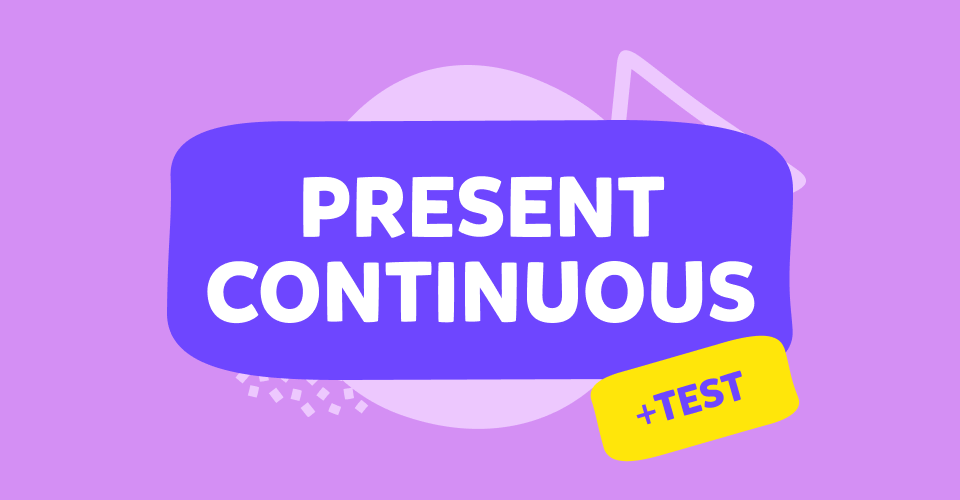- Simple Future tense – the rules
- Future tense types – will
- Future tense types – be going to
Learning English grammar may seem difficult, especially to young students. However, it’s important to start learning it from an early age and try putting together grammatically correct sentences from the very beginning. Using English grammar accurately supports children’s ability to speak fluently, because using new vocabulary in grammatically correct sentences makes it easier to memorize.
Furthermore, one of the best ways of learning English grammar is simply by talking with a native-speaker. For natives using English tenses, such as Simple Future tense, comes naturally, so the more your child speaks with a native teacher, the more they remember the sound and construction of English sentences. However, learning English grammar by understanding the rules helps too. English tenses for kids should be explained with visuals and examples. The combination of understanding the grammatical rules and using tenses in practice always gives best results.
In this article, we will explain what the Future Simple tense is and when it is used in real life situations, with examples! You will also find out which form is used to express the Simple Future tense and how to build sentences in this tense in a correct way. Are you and your child ready to learn something new today? Let’s go – future tense explained!
Simple Future tense - the rules
The Simple Future tense is an English verb tense which is used to talk about things that haven’t happened yet. Things that are supposed to happen in the future. You can use the Simple Future tense to talk about an action or condition that will begin and end in the future.
With Simple Future tense, it’s important to remember that it has two slightly different forms in English: „will” and „be going to”. Although the two forms can be used interchangeably, they often express two different meanings. “Will” is frequently used for making offers, and “be going to” is rather used for making plans.
Read on for more explanation and examples of types of this future tense.

Future tense types - will
The formula for the Simple Future tense with “will” is:
will + [root form of a verb]
We can use will in Simple Future tense to suggest that a person will do something voluntarily. Also, we often use will to respond to someone’s complaint or request for help. Another example is using will to express a promise.
Simple Future tense with examples – will
| Infinitive | Simple Future | Negative |
| to be | will be | will not be / won’t be |
| to have | will have | will not have / won’t have |
| to ask | will ask | will not ask / won’t ask |
| to work | will work | will not work / won’t work |
Examples of Simple Future tense with “will” in sentences
- I will send you the guidelines when I get it.
- Will you make dinner?
- We will make some sandwiches.
- I will call you when I arrive.
- He will not tell your secret to anyone.
- Don’t worry, I will be careful.
Future tense types - be going to
The formula for the Simple Future tense with “be going to” is:
[am/is/are] + going to + [root form of a verb]
We can use “be going to” in Simple Future to express that something is a plan, no matter whether it’s realistic or not. Both forms: will and be going to, can be used to express the idea of a general prediction about the future.
Simple Future tense with examples – be going to
| Infinitive | Simple Future – I | Simple Future – You, We, They | Simple Future – He, She, It |
| to be | am going to be am not going to be |
are going to be are not going to be |
is going to be is not going to be |
| to have | am going to have am not going to have |
are going to have are not going to have |
is going to have is not going to have |
| to ask | am going to ask am not going to ask |
are going to ask are not going to ask |
is going to ask is not going to ask |
| to work | am going to work am not going to work |
are going to work are not going to work |
is going to work is not going to work |
Examples of Simple Future tense with “be going to” in sentences
- She is going to spend her summer vacation in California.
- When are we going to meet each other tonight?
- We are going to begin law school next year.
- Who is going to buy a present for Jason’s birthday party?
- They are not going to celebrate Christmas with Jane’s parents.
- 2023 will be a challenging year.
- 2023 is going to be a challenging year.
If your child struggles to learn English at school, it’s time to try something fresh! Sign your kid up for a free demo online lesson at Novakid. During the lesson, your child will meet a dedicated native speaker, who will teach your little one English through games and fun activities. All of it happens in a friendly and stress-free environment of a virtual classroom. All classes are taught 1:1, meaning that students really get to know their regular teachers.
To participate in a lesson, your child only needs a computer with access to the Internet. Everything else is on Novakid. Lessons are engaging, fast-paced and last just 25 minutes, making it easier for children to maintain focus and retain the material. Furthermore, Novakid’s programs are based on the CEFR framework, so your child will acquire all the essential English skills such as listening comprehension, speaking, vocabulary and grammar.
Because Novakid uses the immersive approach, and students learn a language in much the same way that natives do – through communication with native teachers, there is no need to stress about memorizing the rules of English grammar. It just comes naturally to your child!
With Novakid’s approach to teaching English, school kids are more likely to understand grammar rules, such as the Simple Future Tense. They will also start using them in practice in no time! Check out what Novakid can offer to your child and start learning English in a fun and convenient way.
Did you like this article? Leave a comment if you find the knowledge presented here beneficial to you and your child.








































